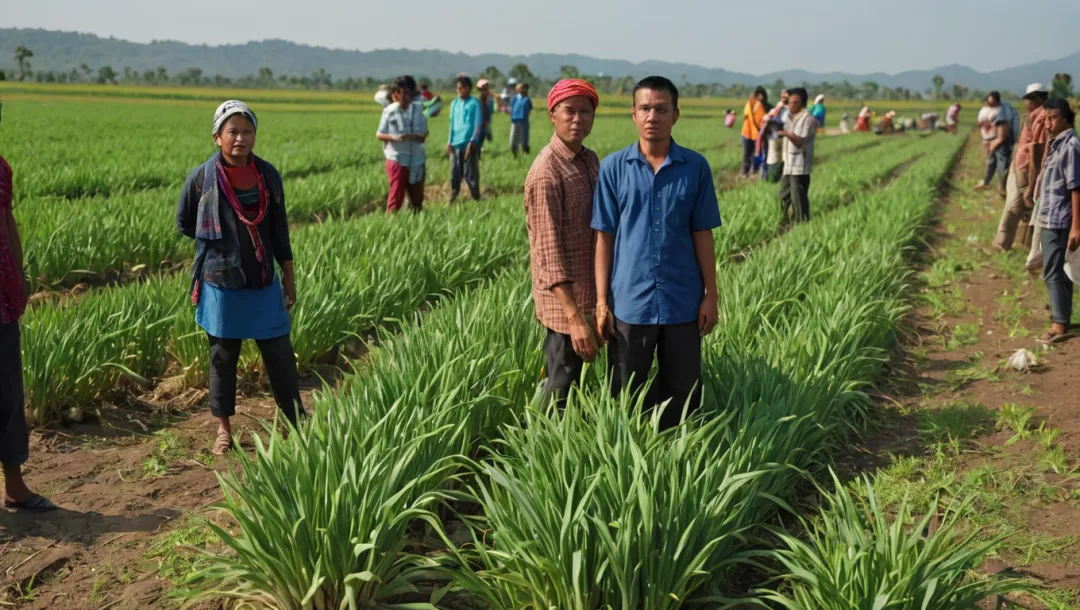Onion Farmers Rise Up

In a display of agricultural unrest, Filipino onion farmers took to the streets in a passionate protest against the surge of onion imports that has sent domestic prices plummeting. These farmers, who depend on onion farming as their primary source of income, are facing a dire economic crisis as they struggle to compete with the cheaper imported onions flooding the market.
The protest highlighted the critical situation in rural regions of the Philippines where agriculture forms the backbone of local economies. The farmers, wielding signs and voicing their grievances, made their way through the heart of the farming community, calling on the government to take immediate action to protect their livelihoods and stabilize onion prices.
According to the protesters, the influx of foreign onions has led to a drastic drop in the price they receive for their crops, with some farmers claiming they are being forced to sell at a loss. The agricultural sector, already vulnerable to the whims of weather and market fluctuations, now finds itself outmatched by the price and scale of imported produce.
Local officials have been urged to prioritize the plight of these farmers, with many calling for stricter regulations on imports to ensure fair competition. The farmers argue that without governmental intervention, the future of domestic onion farming—and the communities that rely on it—hangs in the balance.
The demonstration not only represents the struggles of onion farmers but also puts a spotlight on the broader issues of food security and sovereignty in the Philippines. Advocates stress the importance of sustaining local agriculture to ensure a stable food supply chain, particularly in times of global uncertainty.
As the protest gained momentum, it captured the attention of national policymakers. Discussions are underway to review the current import policies and consider measures that could alleviate the financial stress on Filipino farmers. The outcome of these discussions is eagerly awaited by the agricultural community and could set a precedent for future trade and farming policies in the country.







